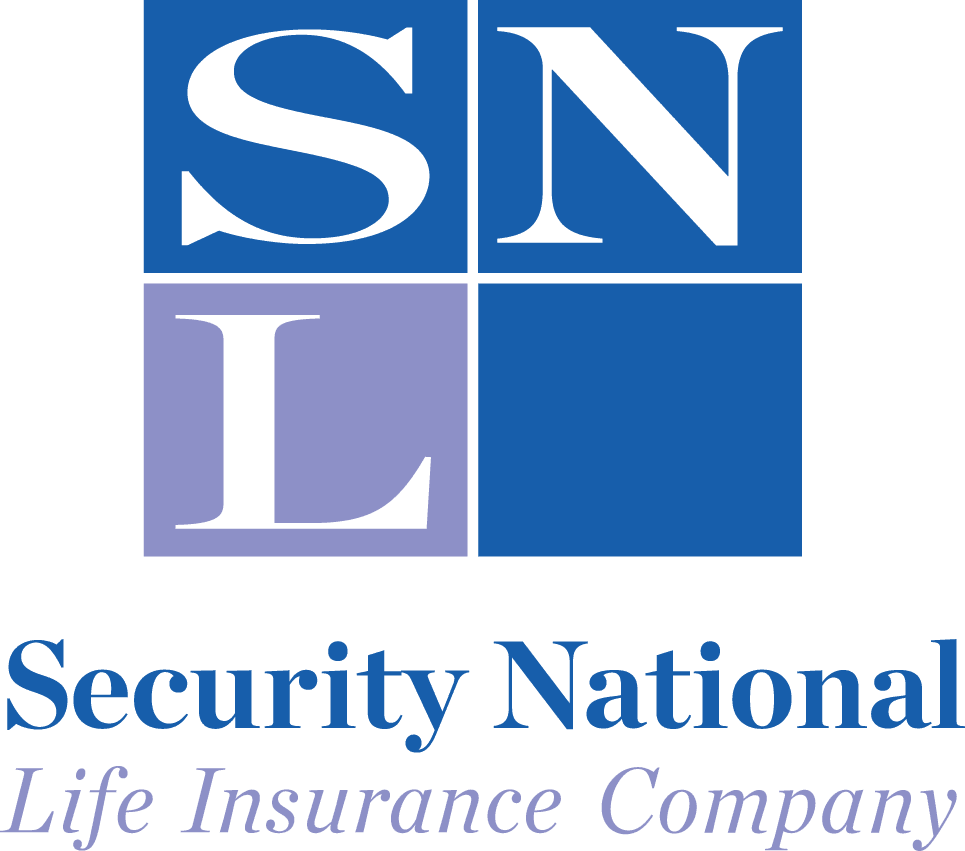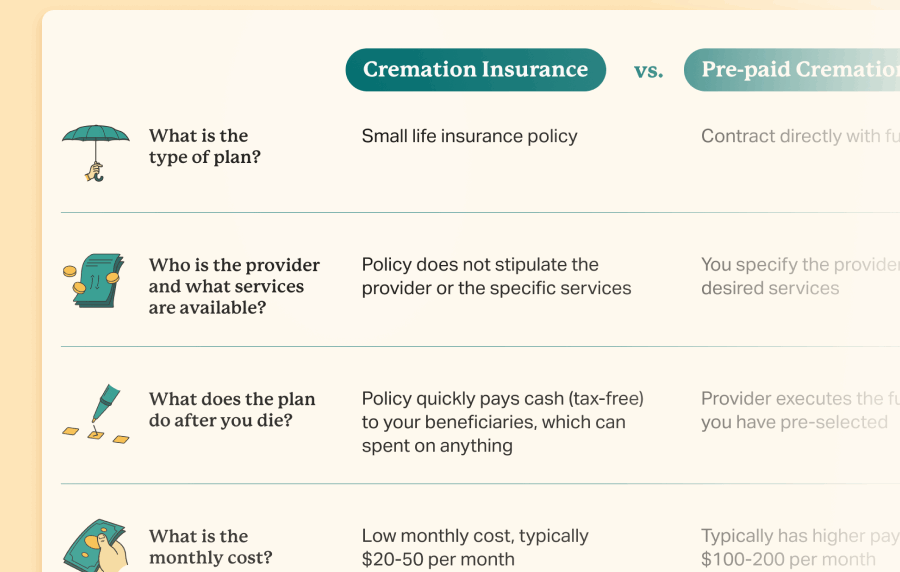The Requirements For Buying Burial Insurance For Your Parents
Below are the necessary conditions for you to buy a final expense policy for your mother or father:
- They have an SSN or TIN.
- When applying, they are physically located in the USA.
- They have the mental capacity to sign a legal contract.
- They consent to you buying the policy on them.
- If applying for a policy with no waiting period, they must answer the health questions.
- They sign the application (there are various ways to sign).
It’s important to note that those requirements cannot be waived under any circumstances.
If your parents won’t let you buy life insurance coverage for them, your best option would be a pre-paid burial.
Buying life insurance for someone else generally requires “insurable interest.” Insurable interest is when you, the beneficiary, would endure a financial setback due to the insured’s death (your parents). Fortunately, your parent’s funeral expenses will satisfy the insurable interest requirement.
So when buying final expense insurance for your parents, no insurance company will ask you why you want the policy or require you to provide documents proving you have insurable interest.
It’s best if you are the policyowner
Ideally, you should be the owner, payer, and beneficiary (unless you want someone else to be). That way, you’re the only one who can inquire about the policy or make changes to it. Also, if you own the policy, the accrual of cash value will not interfere with their Medicaid eligibility.
With a life insurance policy, there are four parties:
- Insured: Your parent(s)
- Owner: The person in control of the policy and owns any cash value that has accumulated
- Beneficiaries: To whom the death benefit is paid upon the death of the insured
- Payer: Whoever pays the premiums
Ownership establishment can be done in the application or transferred after the policy has been issued.
Be very wary of buying funeral insurance online. Online applications are typically not meant to be submitted by anyone other than the insured.
If you use online applications from companies such as AAA or Colonial Penn, the insured (your parent) is automatically the owner. You’d be paying for a policy and have no control over it. To make any inquiries or changes to the policy (even to cancel it), the insurance company would only speak to your parent, and only they could execute changes.
How Much Does Final Expense Insurance For A Parent Cost?
Final expense insurance typically costs $50-$100 per month. The exact price depends on your age, gender, health, tobacco usage, state of residence, and the amount of coverage you want. Below are some sample monthly prices.
Funeral Insurance For Elderly Parents Over 80
Buying funeral insurance for parents over 80 isn’t any different from that for other ages. Granted, the options at this age range are limited, but it can still be done (even after 85).
Here are some of the best companies that offer life insurance for seniors over 80. It’s crucial to remember that these providers may only be available in some states. For instance, these companies (except Transamerica) don’t offer coverage in New York.
| Insurance Company | Coverage Options Above 80 | Max Age For New Applicants | When Policy Can Pay Out |
|---|---|---|---|
| $2,000-$50,000 | 85 | No waiting period | |
| $1,000-$25,000 | 85 | No waiting period | |
| $2,000-$25,000 | 89 | No waiting period | |
 | $2,500-$25,000 | 89 | No waiting period |
 | $2,500-$15,000 | 90 | No waiting period |
| $2,000-$10,000 | 90 | Refund of premiums in first 12 months, 50% payout in 2nd year, then full benefits after 2 years |
How To Find The Best Burial Policy For Parents
Whether you want life insurance for a parent or a grandparent, it’s vital to compare various policies to find the best burial insurance plan. That’s because each company’s policies vary significantly in price, underwriting, coverage limits, and waiting periods.
It’s best to work with an independent agency. Independent agencies represent multiple insurance providers rather than just one. An agency’s job is to analyze each company to find the best life insurance option without favoring one provider over another.
In contrast, captive insurance companies do not allow their insurance agents to represent other providers. For example, State Farm is a captive life insurance company. Their agents can only offer State Farm. If you don’t like State Farm’s offer, the agent cannot recommend another insurer that might give you a better deal.
Remember, when you buy through a broker, there is never a cost, fee, or upcharge to the insurance.
How Much Does A Funeral Cost?
Knowing the cost of a funeral is critical when determining how much coverage you should buy for your mom or dad.
According to the NFDA, the average funeral (with a burial, viewing, and vault) costs about $9,995. Cremation is less expensive, but not by a significant amount. The average cost of cremation is $6,280.
You can save considerable money if you opt for direct burial or direct cremation. A direct funeral has no memorial services of any kind. According to Funeralocity, the average direct burial costs $5,137, and the average direct cremation costs $2,202.
Shopping around saves you a lot of money on burial expenses. For example, call multiple cemeteries to see which has the least expensive burial plot. Also, you can buy caskets online from companies like Costco. Just know that you don’t have to accept what the funeral home initially offers you.
How Does Final Expense Insurance Work?
Final expense insurance for seniors is a small whole life insurance policy meant to pay for all funeral expenses. It provides immediate peace of mind, knowing that family members won’t be stuck with the financial burden of unpaid end-of-life costs. Upon your parent’s death, the insurance company will give a tax-free check directly to you or your loved ones so they can pay for their final expenses.
Technically, the payout money can be used for anything, such as funeral services, medical bills, credit card or other outstanding debts, or anything else. Any money left over stays with the beneficiary(s).
The monthly premiums are affordable, medical exams aren’t required, and the underwriting is very lenient so that people with health issues still qualify. Most companies will offer coverage from $2,000-$50,000 and are available from ages 18-90.
Some burial policies have health questions, and some do not. Both options have their pros and cons, so it’s essential to understand the differences.
First, plans with health questions generally cost less and have no waiting period (if you’re approved). On the other hand, plans without health questions (aka guaranteed acceptance life insurance) will not deny you because of pre-existing health conditions.
The guaranteed approval provision does have drawbacks. It is more expensive since the insurer takes on much risk knowing nothing about your health. Also, it has a two-year waiting period. The insurer will only refund your premiums if you die during the waiting period for any non-accidental death.
The payments on a burial insurance policy will never increase, the death benefit will never decrease, and the policy will never terminate due to age. Additionally, the policy builds cash value that the policy owner can withdraw and use as they see fit.
It’s important to remember that you will also hear “burial insurance,” commonly referred to as “final expense insurance” or “funeral insurance.” All three of these terms have the same meaning.
Frequently Asked Questions
Buying burial insurance for a family member (or any adult for that matter) without their involvement and consent is not legally possible. Taking out a policy on them without them knowing would be insurance fraud. In all circumstances, the insurance companies require the insured (your parents) to sign the application and agree that the policy will be issued. That’s true even if you have POA over them.
Final expense whole life insurance is the best type of policy to buy if you need coverage to pay for your parent’s funeral costs. It’s permanent life insurance that lasts forever and has a fixed monthly price. Buying a term life insurance policy is not advisable because they generally terminate around age 80. While term insurance products are cheaper, most seniors outlive them, leaving you with no insurance to cover their burial expenses. A universal life insurance plan is also one to consider, given that it is a type of permanent life insurance. The primary difference between whole and universal life is that a UL policy has payment flexibility and costs slightly less. However, universal life, like term insurance, is risky since the payments often increase after age 75, making it unaffordable and thus losing coverage.
If you want to purchase life insurance to pay for your mom or dad’s funeral bills, first determine what type of funeral they would prefer. Then estimate the cost of their desired funeral to calculate how much coverage you’ll need. The NFDA’s most recent report showed that the average burial with a vault, viewing, and service costs $9,995. Alternatively, a cremation service with viewing costs $6,280. You can significantly lower these costs by opting for direct burial or direct cremation. A direct funeral is when there are no services. The funeral provider immediately buries or cremates the body with no viewing or processions of any kind. The median cost of a direct burial is $5,128, and only $2,196 for a direct cremation.
- Nationally licensed life insurance agent with over 16 years of experience
- Personal annual production that puts him in the top .001% out of all life insurance agents in the nation.
Anthony Martin is a nationally licensed insurance expert with over 16 years of experience and has personally served over 10,000 clients with their life insurance needs. He frequently authors entrepreneurial and life insurance content for Forbes, Inc.com, Newsweek, Kiplinger, and Entreprenuer.com. Anthony has been consulted as an expert life insurance source for dozens of high-profile websites such as Forbes, Bankrate, Reuters, Fox Business, CNBC, Investopedia, Insurance.com, Yahoo Finance, and many more.
- Nationally licensed life insurance agent with over 20 years of experience
- Best selling Amazon author.
Jeff Root is a nationally licensed life insurance expert with over 20 years of experience. He has personally helped over 3000 clients with their life insurance needs. Jeff is a best-selling Amazon author and the managing partner of a highly successful insurance brokerage that manages over 2,500 licensed insurance agents across the USA. He has been a featured life insurance source for prestigious websites such as Forbes, Bloomberg, MarketWatch, Nerdwallet, and many more.
- Nationally licensed life insurance agent with over 15 years of experience
- Best selling Amazon author of five insurance sales books.
David Duford is a nationally licensed insurance expert with over 15 years of experience. He has personally helped more than 15,000 clients buy life insurance. David has been featured as an expert source for highly authoritative publications such as A.M. Best and Insurancenewsnet. He also runs one of the largest Youtube channels to help aspiring insurance agents serve their clients better.
- Nationally licensed life insurance agent with over 20 years of experience
- Best selling Amazon author.
Jeff Root is a nationally licensed life insurance expert with over 20 years of experience. He has personally helped over 3000 clients with their life insurance needs. Jeff is a best-selling Amazon author and the managing partner of a highly successful insurance brokerage that manages over 2,500 licensed insurance agents across the USA. He has been a featured life insurance source for prestigious websites such as Forbes, Bloomberg, MarketWatch, Nerdwallet, and many more.
- Nationally licensed life insurance agent with over 15 years of experience
- Best selling Amazon author of five insurance sales books.
David Duford is a nationally licensed insurance expert with over 15 years of experience. He has personally helped more than 15,000 clients buy life insurance. David has been featured as an expert source for highly authoritative publications such as A.M. Best and Insurancenewsnet. He also runs one of the largest Youtube channels to help aspiring insurance agents serve their clients better.
Choice Mutual often cites third-party websites to provide context and verification for specific claims made in our work. We only link to authoritative websites that provide accurate information. You can learn more about our editorial standards, which guide our mission of delivering factual and impartial content.
-
Insurable interest. https://www.investopedia.com/terms/i/insurable-interest.asp
-
Power of attorney. https://www.consumerfinance.gov/ask-cfpb/what-is-a-power-of-attorney-poa-en-1149/
-
NFDA. https://nfda.org/news/media-center/nfda-news-releases/id/8134/2023-nfda-general-price-list-study-shows-inflation-increasing-faster-than-the-cost-of-a-funeral
-
Funeralocity. https://www.funeralocity.com/average-funeral-price
-
recent report. https://nfda.org/news/media-center/nfda-news-releases/id/8134/2023-nfda-general-price-list-study-shows-inflation-increasing-faster-than-the-cost-of-a-funeral








